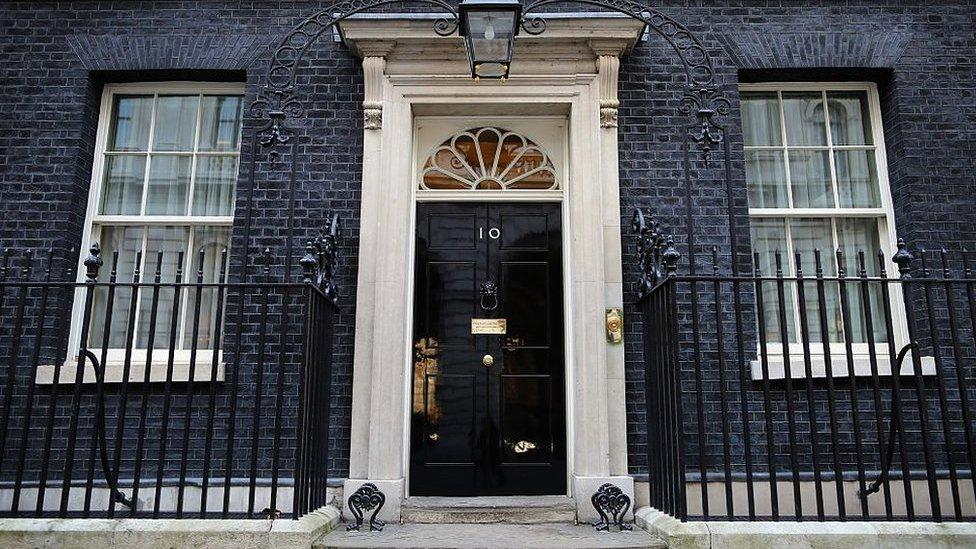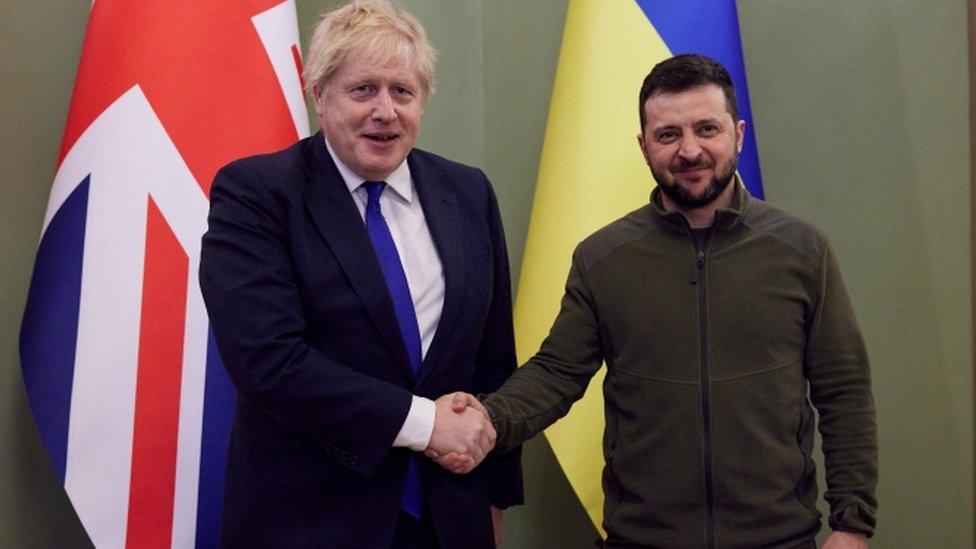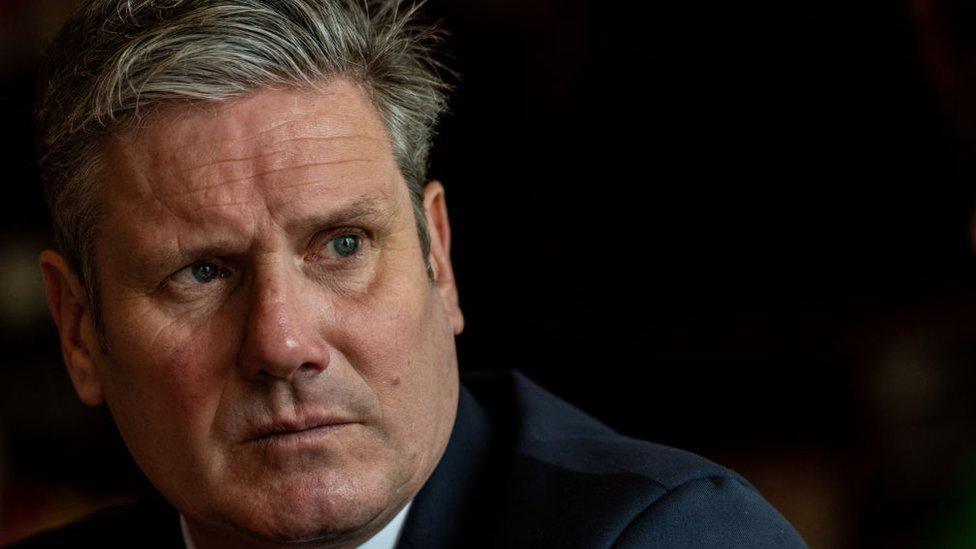MPs debate prime minister's lockdown party fine
- Published
- comments
Lockdown parties: The PM apologises again for attending
Boris Johnson has apologised again for breaking the law after he attended a party during a coronavirus lockdown.
In his first appearance in the House of Commons since he was fined by police for breaking COVID rules, the Prime Minister said people in the UK "had a right to expect better of their prime minister" and that he apologised unreservedly.
While opposition politicians such as the Labour leader Keir Starmer have called on him to resign, Boris Johnson said that he was committed to carrying out the priorities of the British people and challenges such as the war in Ukraine.
Why is Boris Johnson apologising?

In June 2020, when the UK was under strict lockdown rules, a birthday party was held for the Prime Minister Boris Johnson in Number 10 Downing street, where he lives and works.
After originally saying he had no knowledge of parties in Downing Street during the pandemic, an investigation by the Metropolitan Police found that he had attended the event in June 2020, and was issued with a fine for breaking the law.
His wife Carrie Johnson and the Chancellor Rishi Sunak also received fines - called fixed penalty notices - for attending the same event.
WATCH: The story of the government's lockdown parties
This wasn't the only event that was investigated - many other fines have been issued for multiple parties held at Number 10 and other government buildings.
Many people were upset that the person responsible for making the laws around coronavirus broke those same rules himself, and some people have said the prime minister should leave his job.
What did the prime minister say in parliament?
Boris Johnson began by once again saying sorry to MPs in parliament and to the country for attending the party at Number 10.
He said that he paid the fine immediately but that as soon as he received it he knew how hurt and angry the general public would be.
He said that it did not occur to him the gathering in the Cabinet Room on his birthday could amount of a breach of the rules.
"That was my mistake and I apologise for it unreservedly", he added.
He also said that because of how angry the British people are, he feels an even greater sense of obligation to focus on their priorities, as well as supporting Ukraine against the invasion of Russia.

Boris Johnson mentioned his recent meeting with Ukrainian President Volodymyr Zelenskyy
The Labour leader Keir Starmer replied to the Prime Minister's statement by saying: "What a joke."
He added that the public have already made up their mind and "don't believe a word he says".
He continued accusing Boris Johnson of being "dishonest and incapable of changing", a comment that the speaker Lindsey Hoyle asked him to withdraw. This is because saying that other Members of Parliament (MPs) are "dishonest" or "liars" is forbidden.
The Scottish National Party's Westminster leader Ian Blackford added that parliamentary rules prevent him from calling the prime minister a liar.
But he said that it doesn't matter because the public have already made up their mind.
He says the PM has broken the law and adds that: "If he has any decency he would not just apologise, he would resign," and called on members of the Conservative party to remove him as leader.
What happens next?

The opposition Labour party leader Sir Keir Starmer says the public have already made up their mind and "don't believe a word he [Boris Johnson] says"
At the moment, the prime minister has the support of most of the MPs in his own political party.
But, the police haven't finished their investigation into lockdown rules being broken yet, which means more fines could be issued.
And, in next few weeks there are elections in local areas, where adults voting will get to have their say on what they think about what's happened.
A bad result for the Conservative party in those elections may be seen as a reflection of how the public feels about this issue.
